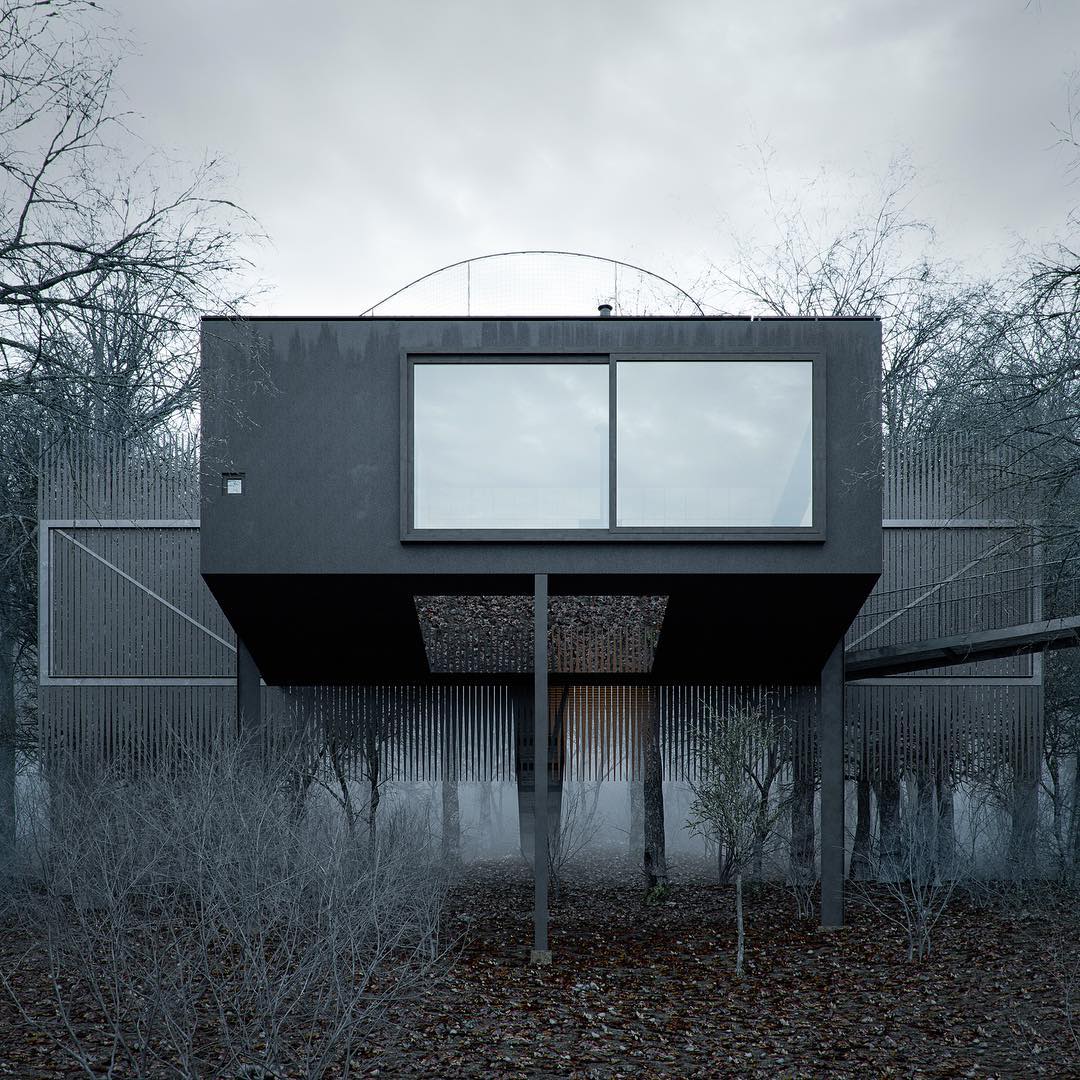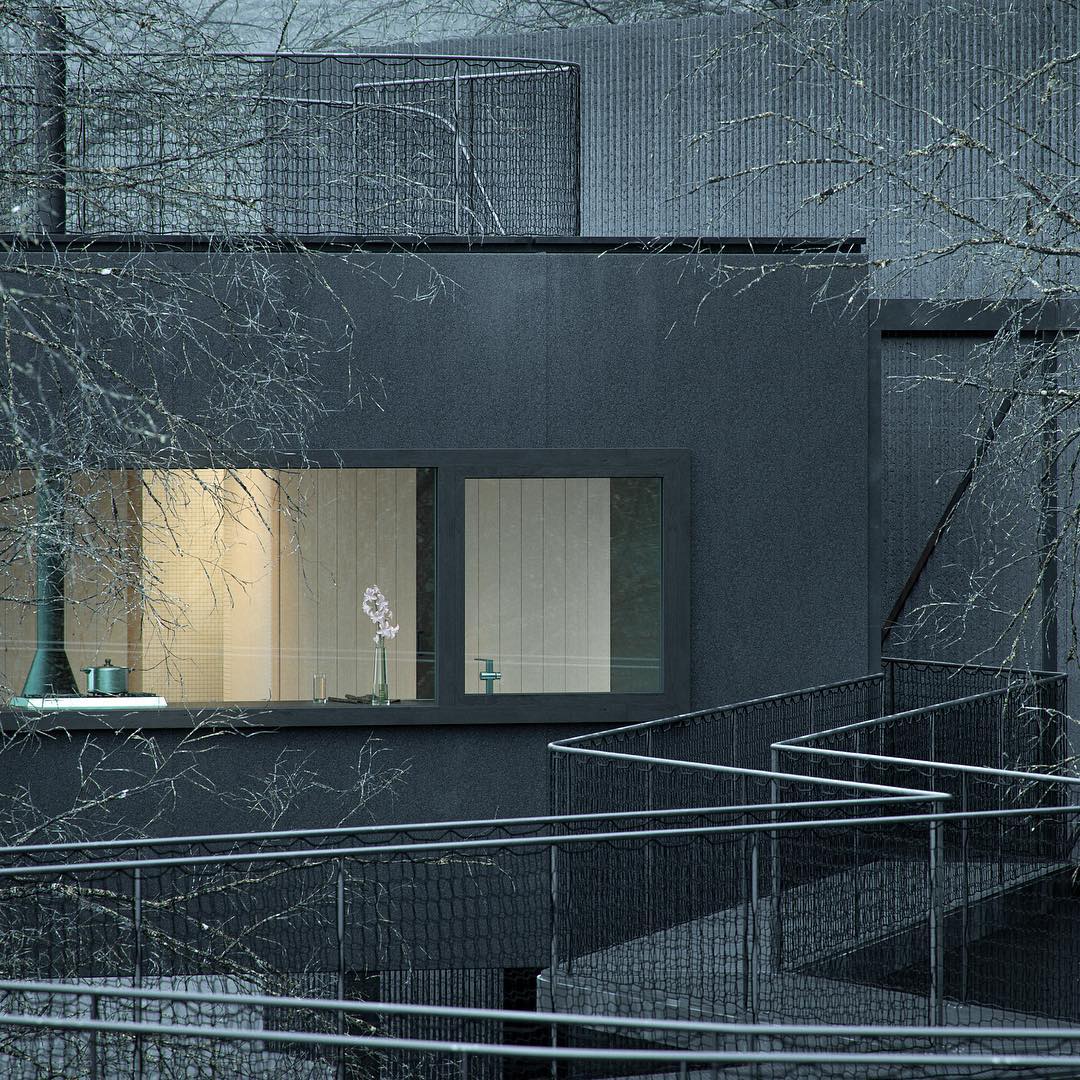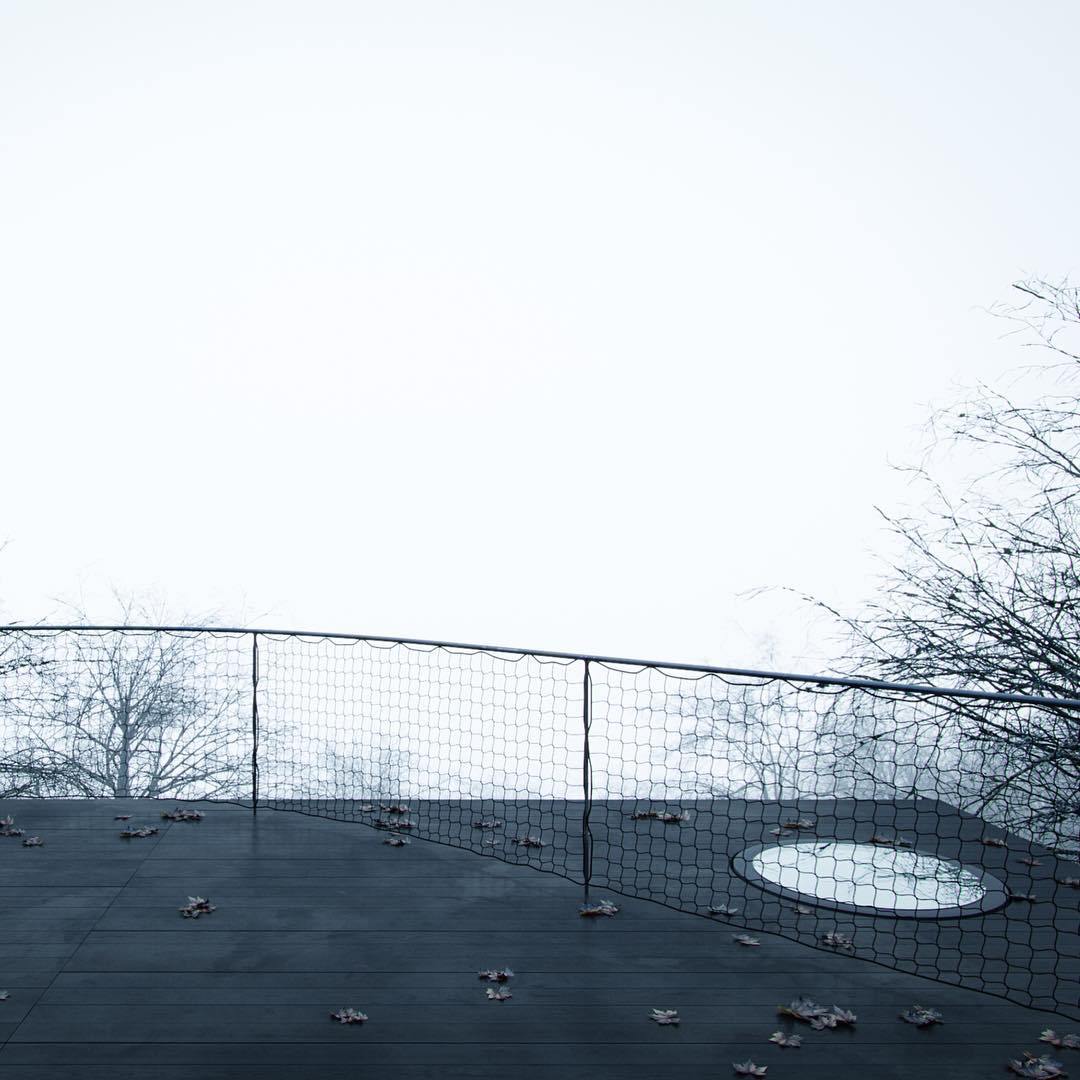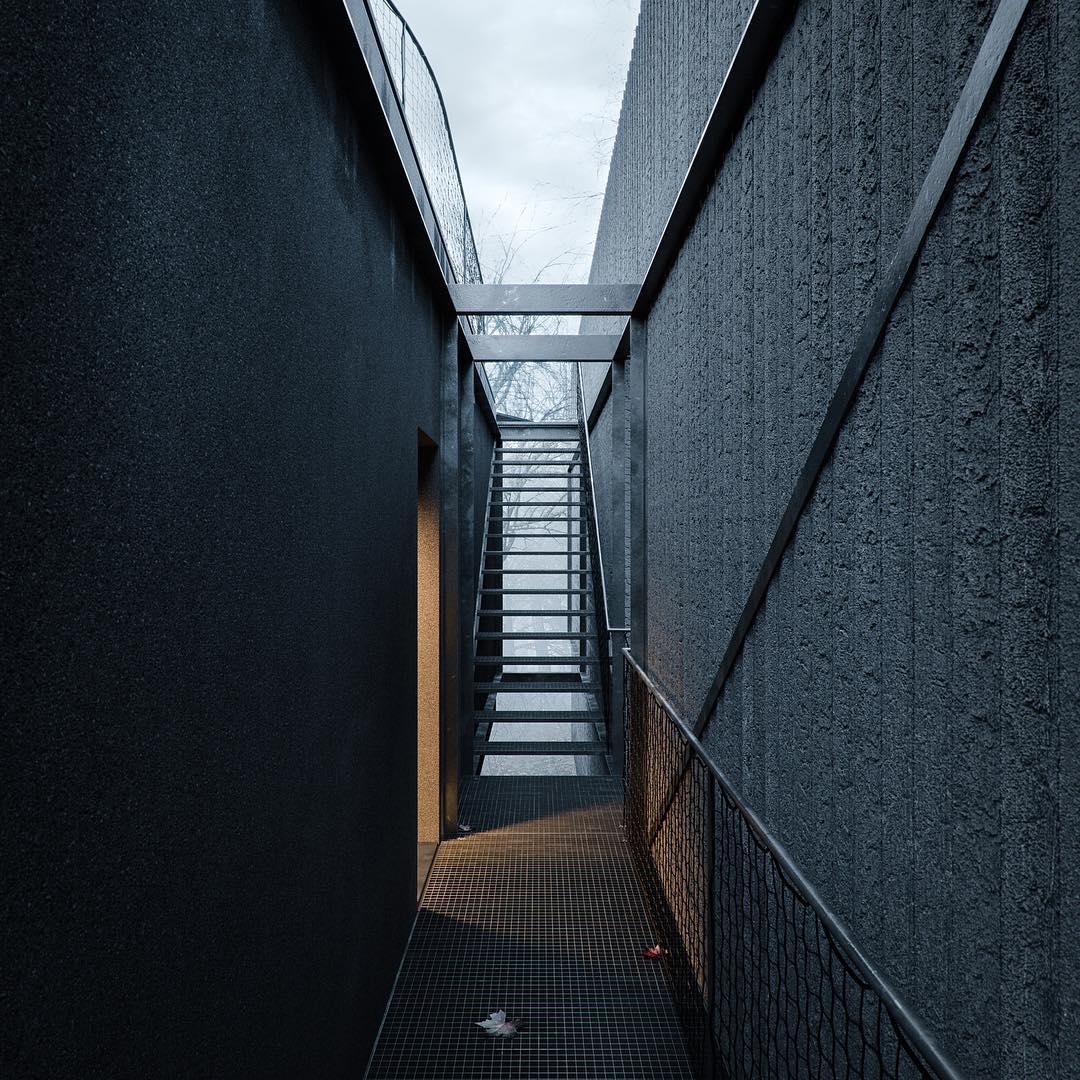
Buildings have the power to evoke memories, recall histories and even generate physical or emotional effects. They also have the power to transform the spaces around them and inspire potential within all who engage with them. Whether it’s a long deserted childhood home or the place in which a love was lost, human nature often leads to emotion and place becoming entangled with one another. These renderings of a home set for construction in Ithaca, New York, showcase a space built specifically for this entanglement and to serve as a place for reflection and recovery from grief.
Designed by WOJR, an organisation of designers based in Massachusetts, the ‘Mask House’ is a conceptual cabin created to be “a place of separation and protection that removes one from the world of the everyday and offers passage to another world.”
Conceptualised specifically for a client who lost his brother, the cabin was created as a space for him to seek solace in its isolation.


Dubbed “A Space of Myriad Sanctuaries”, the WOJR team envisioned the ‘Mask House’ as a secluded sanctuary that could effectively serve as a place of separation for their client. Hidden behind a screen of vertical slats and perched on stilts overlooking a lakeside (the very lake in which the client’s brother lost his life), the house is just 55 square metres and includes a large open room with a small kitchen to one side, a bathroom, and a small bed tucked away in a skylit cubby.
The main entrance room is sparse but for a suspended hearth in the centre and features wood panels on nearly all surfaces – save for a glass door that takes up the entire lake-facing wall and leads to a balcony. Raised on pilotis, the space features a succession of smaller rooms meant to evoke a sense of “becoming successively more removed from one world and more connected to the next.”
Intentionally dark and removed from the outside, the house’s purpose is to stimulate monastic reflection on the path to healing. Though offering a necessary sense of escape, its construction at the site of his trauma ensures its occupant doesn’t stray too far from his purpose. Consoling and dignified without being sentimental or patronising, the ‘Mask House’ serves as an effective space for both healing and remembrance.






